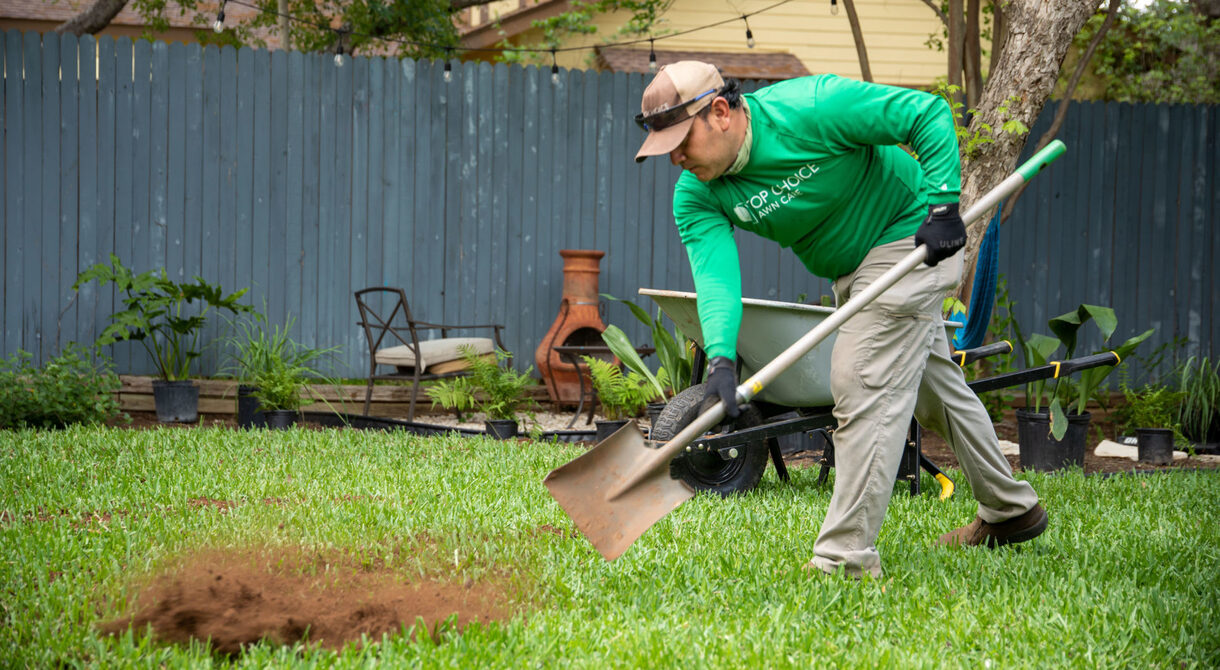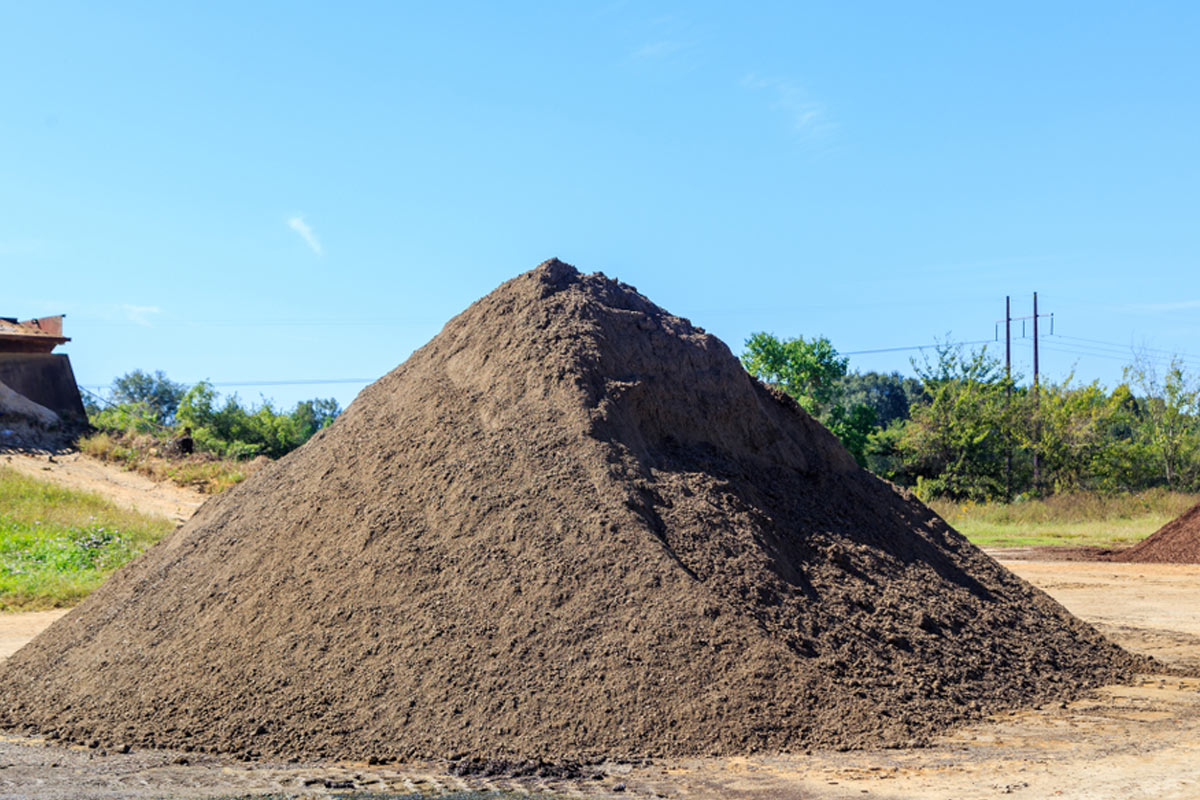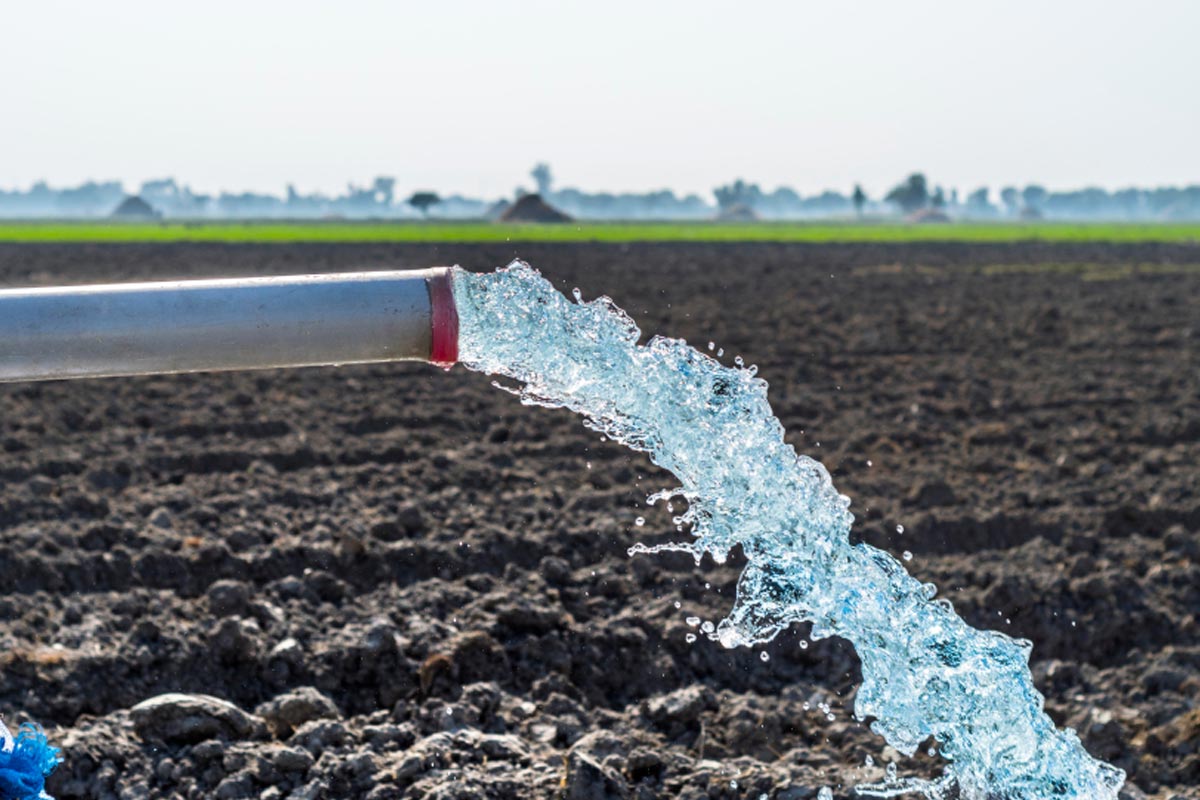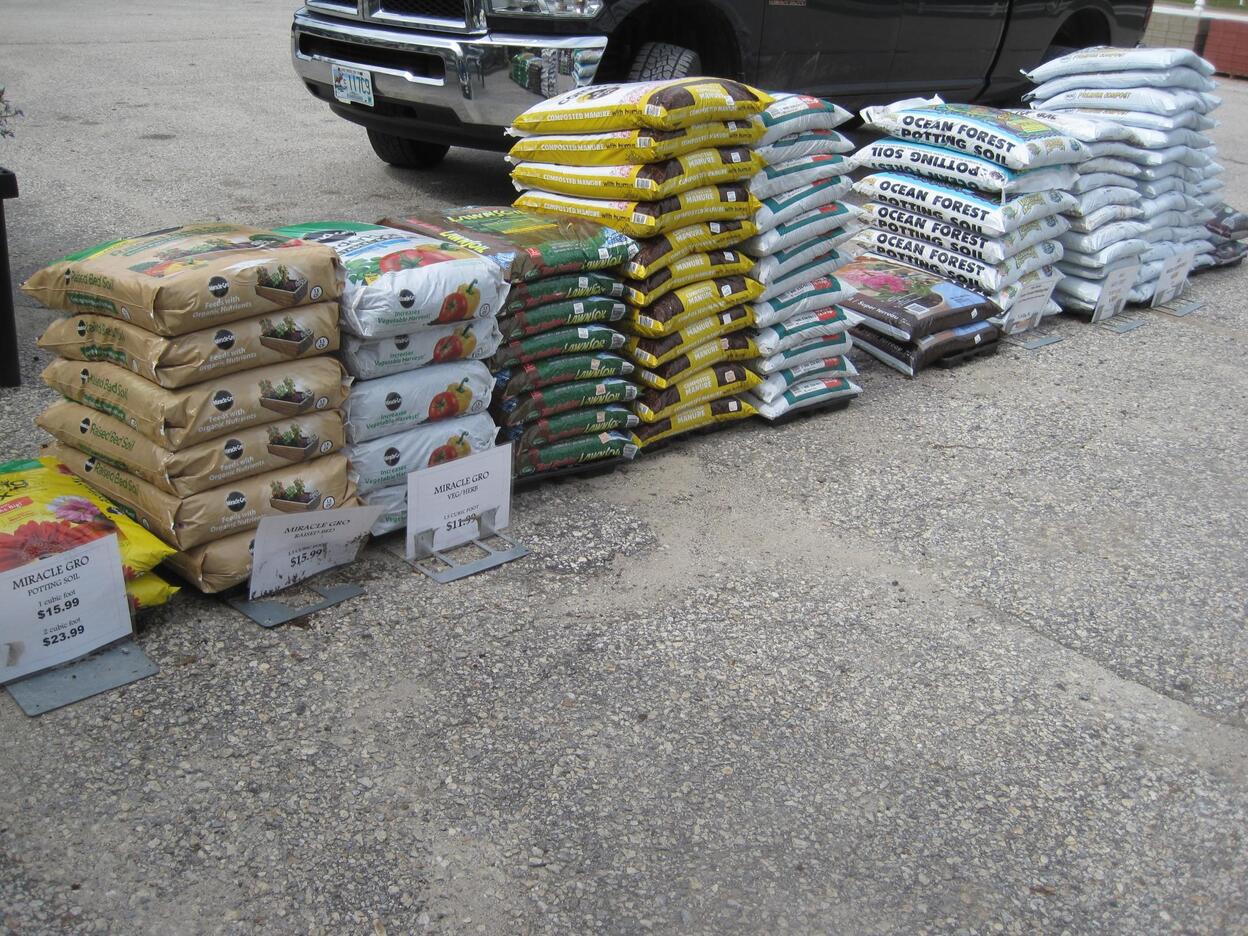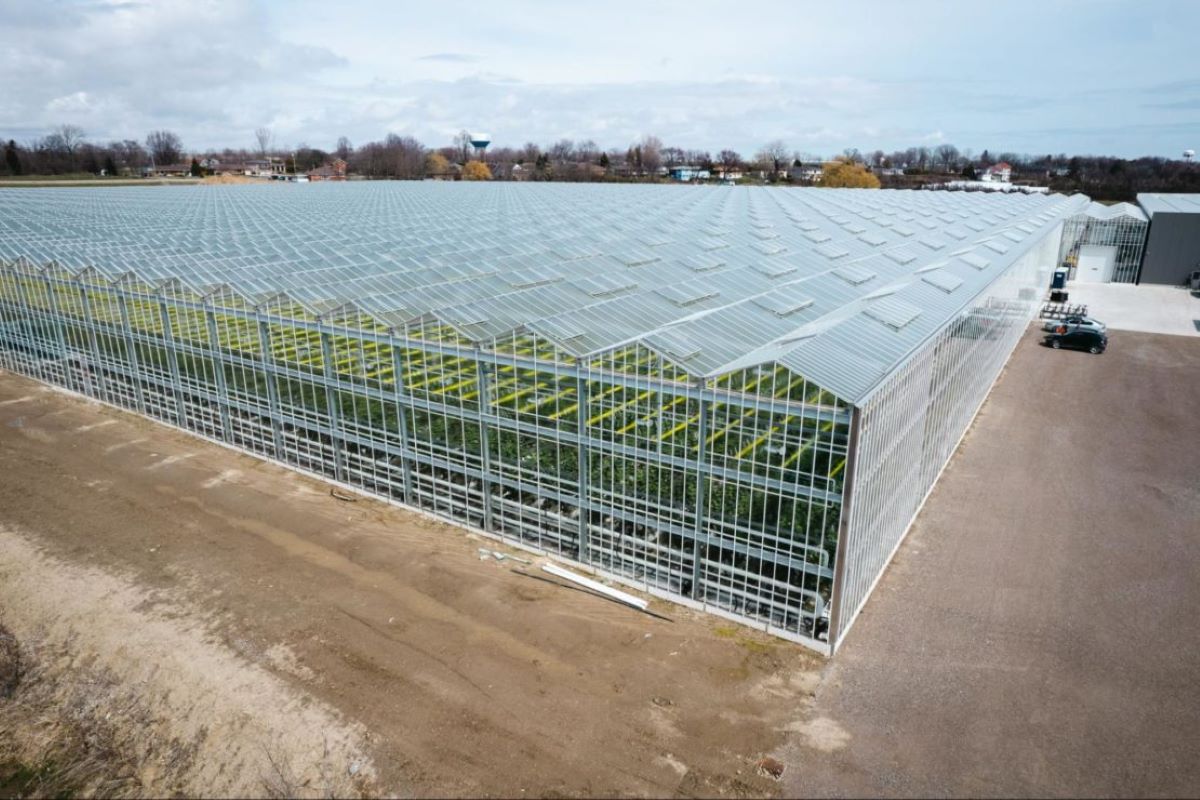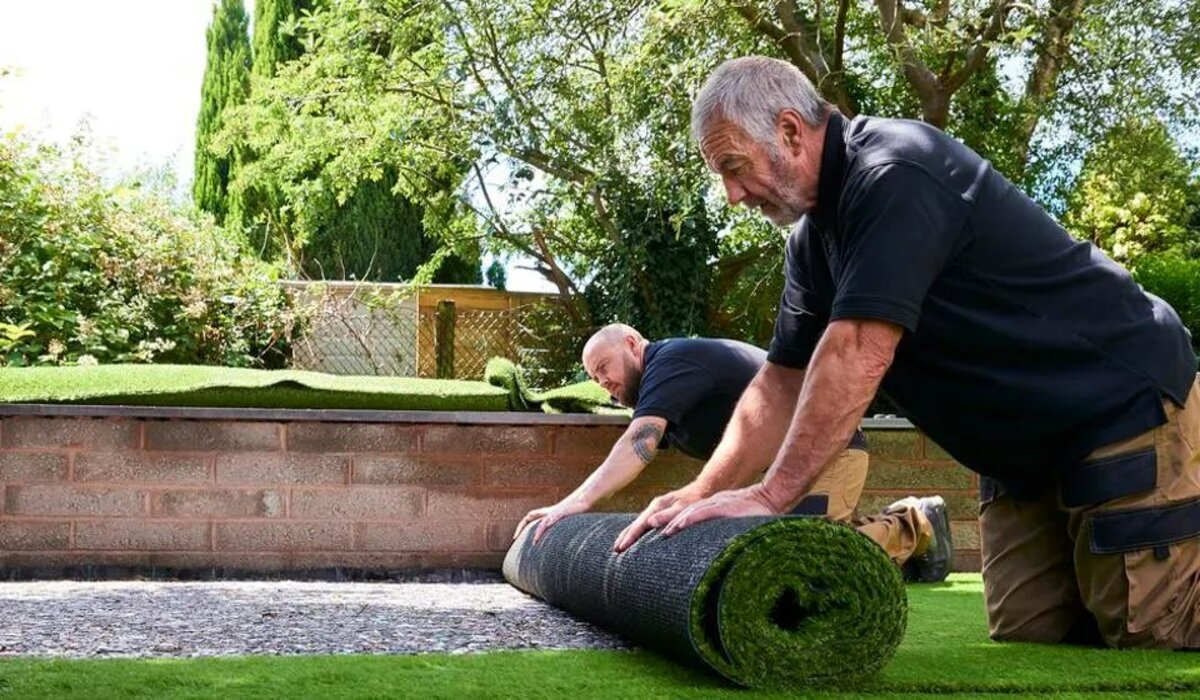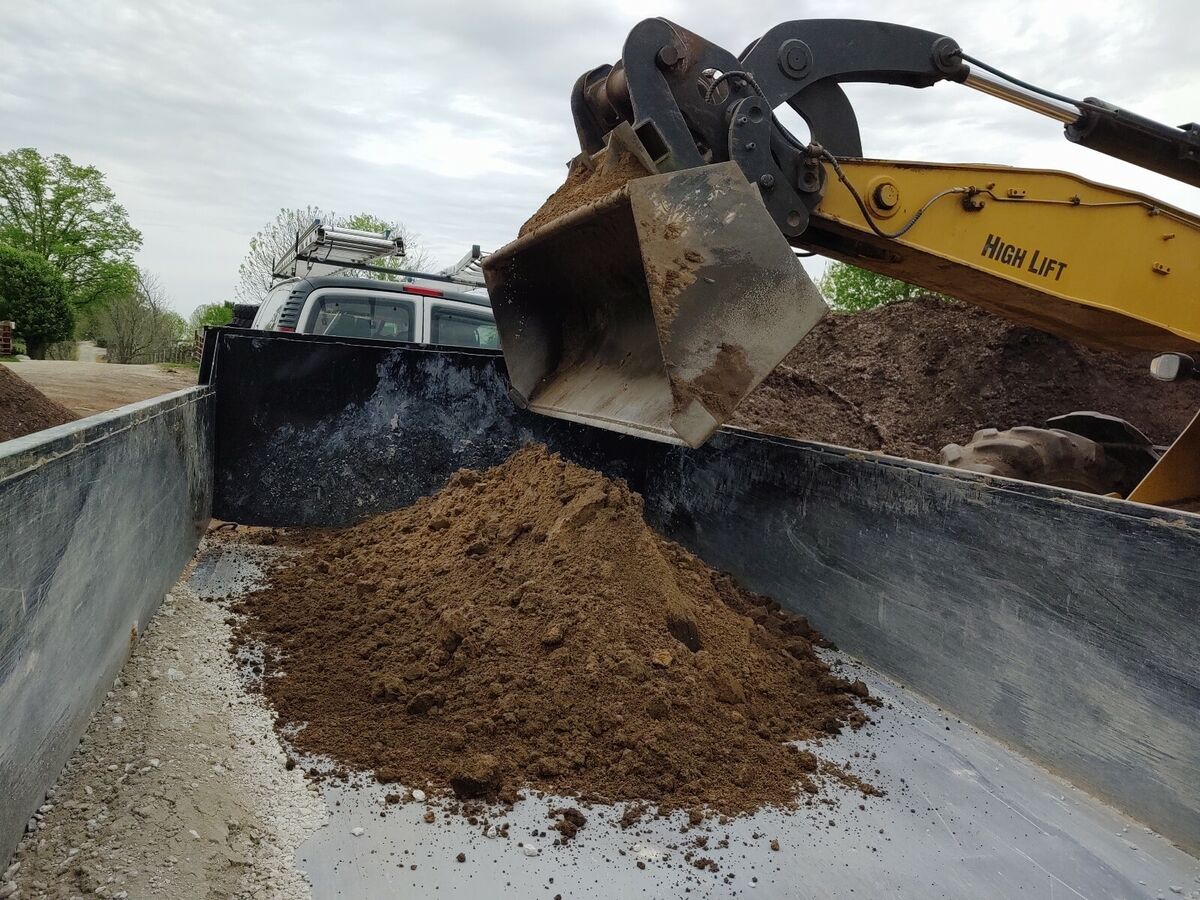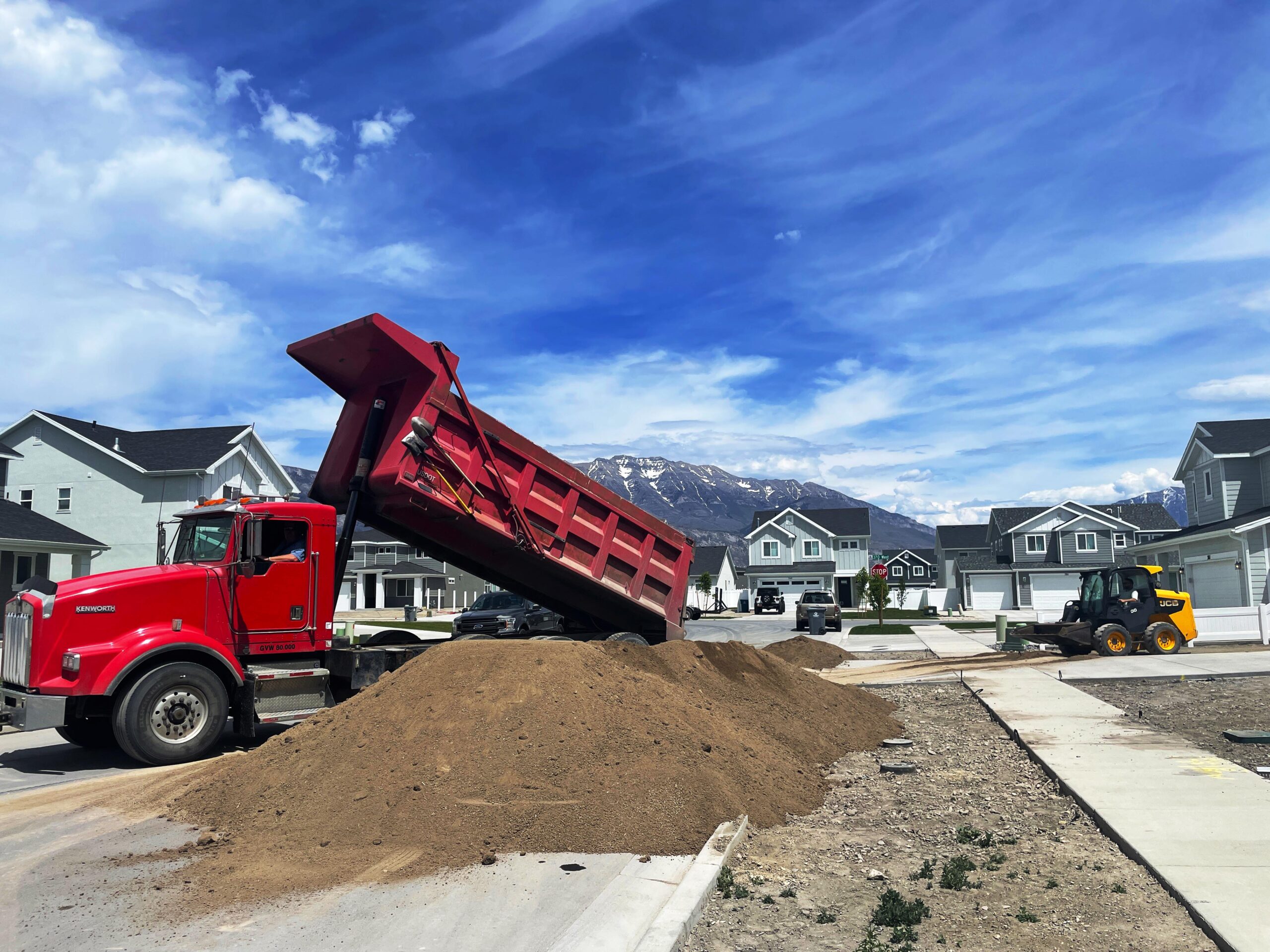Home>Gardening Basics>Understanding Soil>How Much Is A Yard Of Topsoil Cost
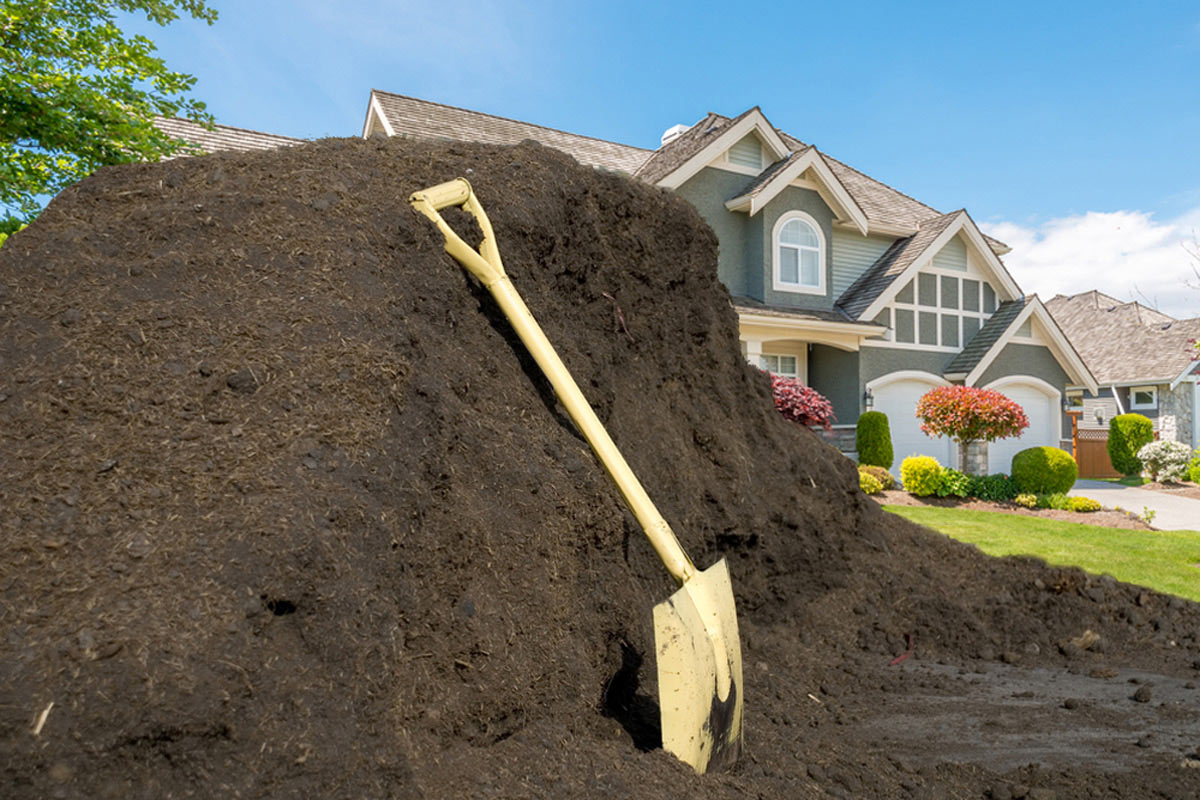

Understanding Soil
How Much Is A Yard Of Topsoil Cost
Modified: January 22, 2024
Learn about the cost of topsoil by understanding soil. Get insights on how much a yard of topsoil costs and make informed decisions for your landscaping projects.
(Many of the links in this article redirect to a specific reviewed product. Your purchase of these products through affiliate links helps to generate commission for Chicagolandgardening.com, at no extra cost. Learn more)
Table of Contents
Introduction
Welcome to our comprehensive guide on understanding the cost of a yard of topsoil. If you’re embarking on a landscaping or gardening project, topsoil is an essential component to consider. Topsoil forms the uppermost layer of soil and contains a high concentration of organic matter, nutrients, and microorganisms. It provides an ideal medium for plants to grow and thrive.
While you may know the importance of topsoil, you might not be sure about the cost associated with purchasing a yard of it. The cost of topsoil can vary depending on several factors, such as the location, supplier, quality, and any additional services included. Understanding these factors will help you make an informed decision and budget accordingly.
In this article, we will explore the various factors that can influence the cost of a yard of topsoil, the price range you can expect, additional costs to consider, and where you can buy topsoil. We will also highlight the factors you should consider when choosing a topsoil supplier.
Whether you’re a homeowner looking to enhance your garden, a landscaper working on a project, or a farmer needing to replenish your soil, this guide will provide you with valuable insights to make the process smoother and cost-effective.
Factors Affecting the Cost of Yard of Topsoil
Several factors can influence the cost of a yard of topsoil. Understanding these factors will enable you to assess the quotes you receive and make an informed decision. Let’s take a closer look at the key factors:
- Location: The geographical location plays a significant role in determining the cost of topsoil. Prices can vary from one region to another due to factors like availability, transportation costs, and local supply and demand. For example, urban areas with higher demand may have higher prices compared to rural areas.
- Quality: The quality of the topsoil also affects its cost. High-quality topsoil that is rich in organic matter and nutrients will generally be more expensive. This type of topsoil is ideal for promoting healthy plant growth and may have undergone additional processing or amendments to enhance its properties.
- Quantity: The amount of topsoil you need will impact the overall cost. Suppliers often price topsoil based on volume, such as per cubic yard or per ton. The larger the quantity you require, the lower the cost per unit may be.
- Delivery: If you opt for delivery, the distance and accessibility of your location can affect the cost. Suppliers may charge additional fees for long distances or challenging terrain. Some suppliers include delivery charges in their overall quote, while others may charge separately.
- Season: Seasonal fluctuations can also impact the cost of topsoil. Prices may be higher during peak gardening and landscaping seasons when demand is at its highest. Consider planning your project and purchasing topsoil during offseasons to potentially save on costs.
- Additions or Amendments: Depending on your specific needs, you may require additional services or amendments to the topsoil. For example, if you’re looking for screened topsoil with a specific particle size, or if you need additives like compost or sand mixed in, these customization options can affect the overall cost.
By considering these factors and discussing them with potential suppliers, you can get a better understanding of the costs involved and make a decision that aligns with your budget and project requirements.
Price Range for Yard of Topsoil
The price of a yard of topsoil can vary depending on the factors mentioned earlier. It’s essential to have an idea of the price range to anticipate the costs associated with your project. While specific prices may differ based on location and supplier, here is a general overview:
On average, the cost of a yard of topsoil can range from $20 to $60. However, it’s important to note that these prices can vary significantly. Lower-priced topsoil may be available for as low as $10 per yard, but it may lack the quality and nutrients required for optimal plant growth.
Mid-range topsoil can be priced around $30 to $40 per yard and is a popular choice for many gardening and landscaping projects. It offers a good balance between quality and affordability, providing the essential nutrients and organic matter needed for healthy plants.
High-quality topsoil, which is typically enriched with nutrients and organic matter, can cost between $50 and $60 per yard. This type of topsoil is often preferred for more demanding projects, such as professional landscaping or agricultural use.
Keep in mind that these prices are for the topsoil alone and do not include any additional costs, such as delivery or amendments. It’s important to inquire about these potential expenses when requesting quotes from suppliers.
Remember that while cost is an important factor, it should not be the sole decision-making criteria. Consider the quality, reputation of the supplier, and the specific requirements of your project. Investing in high-quality topsoil can provide long-term benefits, such as healthier and more robust plants.
Obtaining multiple quotes from different suppliers will help you compare prices and make a more informed decision. Additionally, ensure that the quotes you receive are transparent and include all applicable fees and charges. This will help you avoid any surprises or hidden costs down the line.
Additional Costs to Consider
When budgeting for a yard of topsoil, it’s important to be aware of any potential additional costs that may arise. These costs can vary depending on various factors and should be accounted for in your overall budget. Here are some common additional costs to consider:
- Delivery: If you are unable to pick up the topsoil yourself, you may need to arrange for delivery. Delivery fees can vary depending on the distance to your location and any site-specific challenges, such as narrow access or difficult terrain. Be sure to inquire about delivery costs when obtaining quotes.
- Equipment Rental: Depending on the scale of your project, you may need to rent or use equipment such as a loader, bobcat, or dump truck to transport and distribute the topsoil. Equipment rental costs should be factored into your budget if you do not own the necessary tools.
- Amendments and Additives: Depending on the condition of your existing soil and the specific requirements of your project, you may need to add amendments or additives to the topsoil. These can include organic matter, compost, sand, or fertilizers. The cost of these additives should be considered when budgeting for your topsoil project.
- Disposal or Removal: If you have existing soil or other materials that need to be removed or disposed of to make way for the topsoil, there may be additional costs associated with waste removal. This can include the cost of hiring a waste management service or renting a dumpster.
- Installation and Labor: If you are hiring professionals to install the topsoil or perform any related landscaping work, be sure to factor in the cost of labor. The rates for installation can vary depending on the complexity of the job, the size of the area, and the expertise of the professionals you hire.
It’s crucial to discuss these potential additional costs with your supplier and any contractors or professionals involved in your project. Obtaining detailed quotes that outline any potential fees and charges will help you plan your budget more accurately and avoid any unexpected expenses.
Lastly, remember that investing in quality materials and services is often worth the cost in the long run. High-quality topsoil and professional installation can greatly improve the health and vitality of your plants, leading to a more aesthetically pleasing and sustainable landscape.
Where to Buy Yard of Topsoil
When it comes to purchasing a yard of topsoil, there are several options available to you. Here are some common sources where you can buy topsoil:
- Local Nurseries and Garden Centers: Many local nurseries and garden centers offer topsoil for sale. These establishments often have knowledgeable staff who can guide you in choosing the right type of topsoil for your project. Visiting a local nursery or garden center allows you to see and feel the topsoil before making a purchase, and you can also ask any questions you might have.
- Landscape Supply Companies: Landscape supply companies specialize in providing materials for landscaping projects, including topsoil. They typically offer a range of options, such as screened or blended topsoil, and may provide delivery services. Working with a landscape supply company ensures that you are sourcing your topsoil from a reliable and experienced supplier.
- Online Retailers: Buying topsoil online has become increasingly popular. Many online retailers offer a wide variety of topsoil options, allowing you to compare prices and read customer reviews. However, keep in mind that online purchases may involve shipping costs, and you may not have the opportunity to physically inspect the topsoil before buying.
- Local Farms or Agricultural Suppliers: If you require a larger quantity of topsoil or are looking for specific types, contacting local farms or agricultural suppliers can be a viable option. These suppliers often have access to bulk quantities and may be able to provide more competitively priced topsoil.
- Construction and Landscaping Companies: Construction and landscaping companies that offer services such as excavation or site preparation often have access to topsoil. Utilizing their services not only provides you with topsoil but also takes care of any necessary excavation or land preparation required for your project.
When considering where to buy topsoil, it’s important to prioritize quality, reliability, and reputation. Look for suppliers who have a track record of providing high-quality topsoil and excellent customer service. Reading customer reviews and seeking recommendations from trusted sources can also help you make an informed decision.
Take into account factors such as proximity to your location, delivery options, and any additional services or expertise that the supplier may offer. By carefully considering these factors, you can find a reliable source for your topsoil needs that meets both your budget and project requirements.
Factors to Consider When Choosing a Supplier
Choosing the right supplier for your yard of topsoil is crucial to ensure you receive a quality product and a positive purchasing experience. Here are some important factors to consider when selecting a topsoil supplier:
- Reputation and Reviews: Research the reputation of the supplier by reading customer reviews and testimonials. Look for a supplier that has a positive track record of providing high-quality topsoil and delivering on their promises.
- Quality of Topsoil: Inquire about the source and composition of the topsoil. Ideally, the topsoil should be rich in organic matter, free from contaminants, and provide the necessary nutrients for plant growth. Ask the supplier about any testing they have conducted to ensure the quality of their product.
- Experience and Expertise: Consider the experience and expertise of the supplier. An established supplier with extensive knowledge of topsoil can offer valuable guidance and recommendations based on your specific project requirements.
- Delivery Options: Find out if the supplier offers delivery services and inquire about the associated costs and delivery timelines. Reliable and timely delivery is essential to ensure your topsoil arrives when you need it.
- Customer Service: Assess the level of customer service provided by the supplier. A supplier with excellent customer service will be responsive to your inquiries, provide clear and detailed quotes, and address any concerns or issues that may arise during the purchasing process.
- Pricing and Transparency: Compare the pricing of different suppliers and ensure that the quotes provided are transparent, including any additional fees or charges. Beware of overly low prices that could indicate subpar quality or hidden costs.
- Sustainability and Environmental Considerations: Consider suppliers who prioritize sustainable practices, such as sourcing topsoil from responsible sources and minimizing their environmental impact. Opting for an environmentally conscious supplier can help support sustainable land management practices.
- Availability and Timelines: Check the availability of the topsoil and the supplier’s ability to fulfill your order within your desired timeline. Ensure that they can accommodate your project schedule and deliver the topsoil when you need it.
By carefully considering these factors, you can choose a topsoil supplier that meets your specific needs and provides you with a positive purchasing experience. Don’t hesitate to reach out to different suppliers, ask questions, and request samples or references if needed. Finding the right supplier will ensure that you receive high-quality topsoil that will enhance the success of your landscaping or gardening project.
Conclusion
Understanding the cost of a yard of topsoil is essential when planning any landscaping or gardening project. By considering the factors that can affect the cost, such as location, quality, quantity, delivery, seasonality, and additional amendments, you can make an informed decision and budget accordingly.
When it comes to pricing, the cost of a yard of topsoil can range from $20 to $60, depending on factors like quality and supplier. It’s important to keep in mind any additional costs, such as delivery, equipment rental, amendments, disposal, or labor, that may be associated with your topsoil project.
There are various sources to buy topsoil, including local nurseries, garden centers, landscape supply companies, online retailers, and local farms or agricultural suppliers. Consider the reputation, quality, customer service, and experience of the supplier when making your choice.
Choosing the right topsoil supplier is crucial to ensure you receive a quality product and a positive purchasing experience. Look for suppliers with a good reputation, provide high-quality topsoil, offer reliable delivery options, have excellent customer service, and consider sustainable and environmentally conscious practices.
In conclusion, understanding the cost factors, price range, additional costs, and various sources for purchasing topsoil allows you to plan and budget effectively for your landscaping or gardening project. By selecting a reputable supplier that meets your specific needs, you can ensure the success and long-term health of your plants and achieve the desired results for your project.
